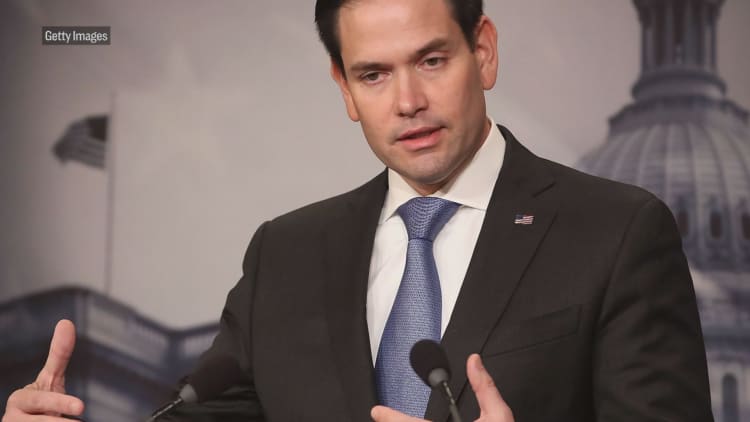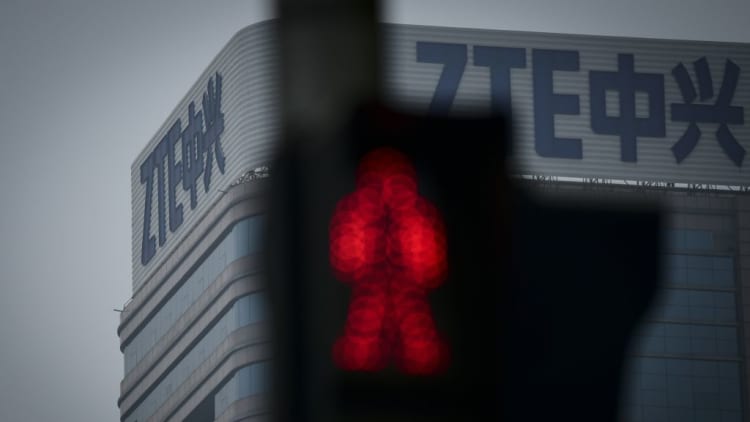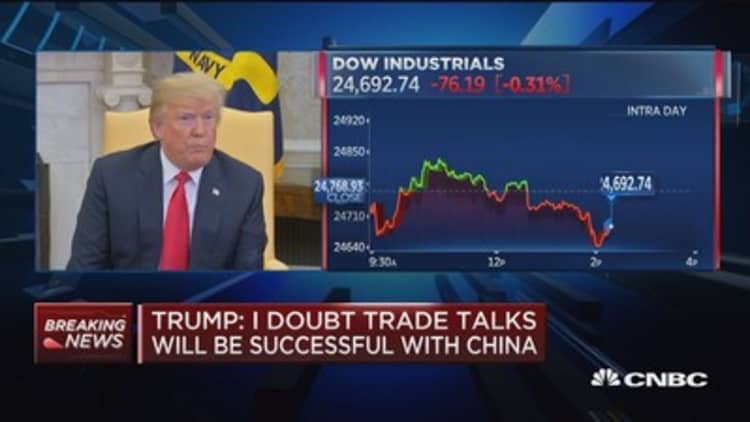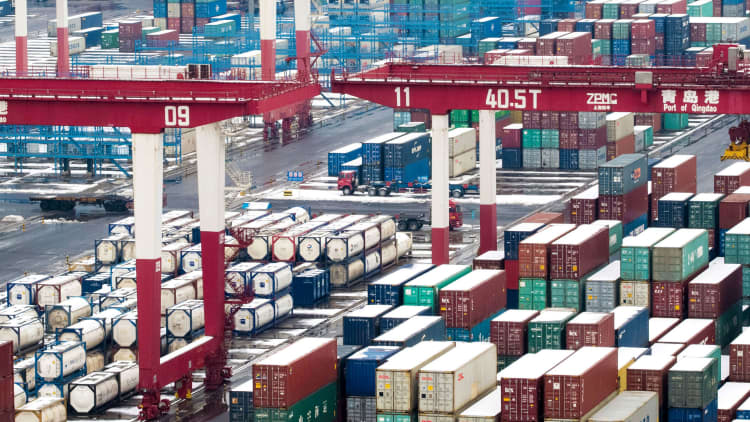
Sen. Marco Rubio said Tuesday he would push for "veto-proof congressional action" to check the Trump administration's reported deal to save Chinese telecommunications company ZTE.
Hours later, the Senate Banking Committee separately approved an amendment proposed by Sen. Chris Van Hollen, D-Md., to limit President Donald Trump's ability to remove sanctions on any Chinese telecommunications company. It passed through the panel easily by a 23 to 2 margin in a bipartisan rebuke to the administration's possible plans.
Washington and Beijing have discussed the framework of a deal for the U.S. to lift the ban on American companies selling goods to the company in favor of possible management changes and fines, according to The Wall Street Journal. China could also remove tariffs on billions of dollars of U.S. agricultural products, the newspaper reported.
In a statement following the vote Tuesday, Van Hollen said "we must continue to work to stop the President from absolving ZTE of its many transgressions in the interest of Chinese jobs."
Rubio, a Florida Republican, has vocally opposed Trump's push to save ZTE in recent weeks. He has called the company's products a national security and surveillance risk.

In a tweet Tuesday, he said the deal would mean the Trump administration has "surrendered" to China and argued changes to the company board and a financial penalty will not stop "spying" and "stealing."
"But this is too important to be over. We will begin working on veto-proof congressional action," the senator wrote.
A spokeswoman for Rubio did not immediately respond to a request for more detail on legislation Rubio would support. Representatives for Senate Majority Leader Mitch McConnell, R-Ky., and Senate Minority Leader Chuck Schumer, D-N.Y., did not immediately respond when asked whether they would support congressional action related to ZTE.

Treasury Secretary Steven Mnuchin, while mainly deferring to the Commerce Department on the issue, attempted Tuesday to quell national security concerns regarding any potential deal on ZTE.
"Although I have participated in certain discussions, I can assure you that whatever the Commerce Department decides, the intel community has been part of the briefings and we will make sure that we enforce national security issues," Mnuchin said during testimony before a Senate panel.
The U.S. put the ban on American firms selling to ZTE after the company violated U.S. sanctions on North Korea and Iran. The move threatened to cripple the company. ZTE has said the ban was unacceptable and threatened its survival, according to a Reuters report earlier this month.
Trump's action to save ZTE comes as the U.S. and China seek a trade pact to avoid potentially devastating tariffs. Trump has long pledged to crack down on alleged intellectual property theft by Chinese companies and reduce the U.S. trade deficit with China. After talks last week, Trump's top advisors said they reached the framework of a trade deal under which China would buy more U.S. goods, but American officials provided few concrete details.
Trump's economic advisors have called the ZTE policy an "enforcement" issue separate from trade negotiations. But Trump himself has confused the messaging, at one point calling the ZTE action part of a "larger trade deal" the sides are negotiating.
Schumer, like Rubio, has accused Trump of caving to Chinese demands after pledging to take a tough stance on Beijing's alleged trade abuses. In a statement Tuesday, the Senate Democratic leader said the reported deal on ZTE "will do nothing to protect American national or economic security" and is "simply a diversion from the fact we have lost."
"President Xi has played President Trump and Secretary Mnuchin," Schumer added.
Van Hollen earlier told CNBC the possible move to save ZTE is "a big mistake" and thinks it will face "bipartisan opposition." He said "there's no doubt" China has outmaneuvered the U.S. in talks.
Sen. Joe Manchin, D-W.V., called ZTE a "threat" and said he thinks Congress can partly address the issue through a bill to reform the Committee on Foreign Investment in the United States. Some lawmakers have argued the entity should have more authority to police Chinese efforts to acquire ownership in U.S. technology.



